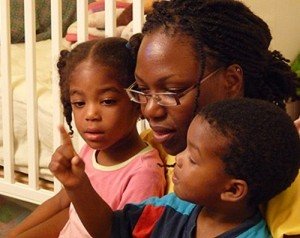I have often said that the residential recovery program’s first goal is to create hope in our clients. What are some ways we can accomplish this?

Before people can begin the process of change they must fully understand two basic truths;
1) that change is needed in a certain area of their lives and
2) that change is possible.
In previous articles, I have discussed strategies of breaking through the addict’s denial system, which is the starting point for his or her accepting the need for change. But if we only convince people that their lives are a mess we may leave them in a place of despair. We must create an environment full of hope where they can catch a vision for how their lives could be in Christ, along with giving the tools to build a life of faith and recovery.
A. Share the Word – In chapel services and Bible studies with new residents spend time studying scriptures like Jeremiah 29: 11 – “For I know the plans I have for you,” declares the LORD, “plans to prosper you and not to harm you, plans to give you hope and a future.” Addicts tend to be “spiritually dysfunctional” and need to gain a clear perspective of God the Father, His character, His power, and His intentions for them.
B. Addiction Education – Gaining more knowledge about addiction serves two very important functions. First, it helps the addict in denial accept his or her condition. Secondly, this knowledge can be a tremendous source of comfort and hope for those struggling with post acute withdrawal symptoms and the emotional difficulties that come with early recovery. Many addicts believe they are “terminally unique.’ — that no one has experienced the same struggles and that their problems are so bad they can’t be fixed. Newly sober addicts need to understand that they are suffering from a malady that is shared by others. Many resources are available: lending libraries, literature, videos, and local professionals who can speak at the mission. Contact AGRM’s Education Office for information on educational resources for use in a mission setting.
C. One-on-One Counseling – Every participant in a long-term program needs at least one hour a week with a staff member who understands addiction to help them through the struggles of early recovery. One very important goal of the first few counseling sessions is to help addicts to work through the toxic shame that them tells them they can’t change. They need to know that God loves them and that His power is available to help them to overcome addiction.
D. Support Groups – Good support groups provide recovering addicts with a safe, non-judgmental setting to share their struggles, thoughts, and feelings without fear of rejection. Hearing the stories of others with similar difficulties and how they overcame them provides valuable encouragement for them to go on in a life of sobriety.
E. Hearing the Stories of Staff Members and Program Graduates – People who are new to our programs need to get acquainted with those who have completed the program and have gone on to lead successful, sober lives. Find ways to get them involved in formal meetings and informal gatherings like alumni picnics. In a similar way, it’s important to give other members of your staff who might not be directly involved with the recovery program a chance to share who they overcame addiction, as well. Both program graduates and staff members who are themselves in recovery stand as living proof that the principles shared in your program really do work!
